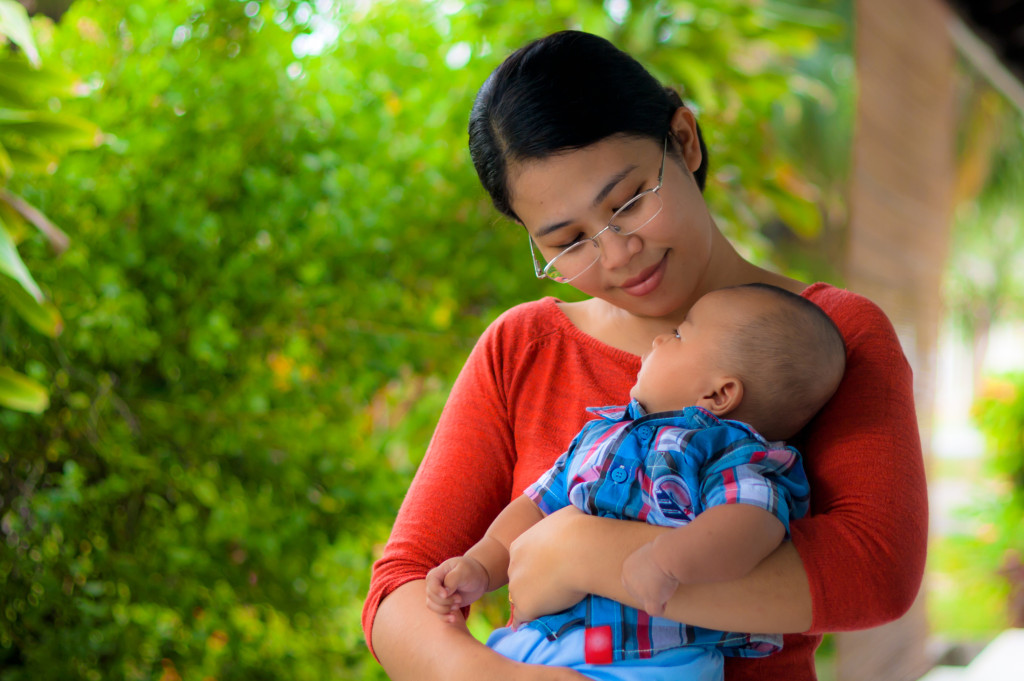 The diagnosis of diabetes is often unexpected and unwelcome to say the least. It can be quite a shock for the person with diabetes and also for their family and friends.
The diagnosis of diabetes is often unexpected and unwelcome to say the least. It can be quite a shock for the person with diabetes and also for their family and friends.
Along with the diagnosis of diabetes can come a range of feelings, such as anger, sadness, grief, denial, loss, relief (that you know what is wrong now and what has been causing symptoms and that there is a treatment), as well as fear and anxiety.
Sometimes these feelings can overwhelm the person with diabetes. If you are a family member or support person you can also experience these feelings and become overwhelmed.
Some people find it hard to talk to the person with diabetes, especially if they withdraw. It can be hard to know how much or how little to become involved in their diabetes management.
If these emotions become too difficult to deal with, it is important to seek support.
If you are a parent of a child who gets diabetes you are going to be taking the lead role and the range of emotions, worries and changes you will face will be similar as for the person with diabetes. As a parent you will have all of the guilt and worry associated with loving your child.
We all need time to adjust to a diagnosis of diabetes and this goes for the person with diabetes as well as their family. You need to allow yourself this time and take things step at a time. As a family member or friend, you might find that you need to talk to someone other than the person with diabetes, so you can work through your own feelings and worries.
It can be very daunting for everyone at first as the management and treatment of diabetes involves a variety of often complex recommendations. This includes healthy eating, physical activity, insulin injections and medication, blood glucose management and weight management, which are all important in staying healthy and reducing the risks of diabetes-related complications in the short and long term.
Family and friends are a very important part of everybody’s life. When someone has diabetes that encouragement and support from loved ones is vital. You also need to remember to get your own support because you will have lots of changes in your life too. 
There are some things that you can do to make the journey with diabetes easier for yourself and the person with diabetes:
Learn about diabetes and its management
Usually the person with diabetes will go to at least one, and often a number, of diabetes education sessions with a diabetes educator.
They will also sometimes attend a range of health professionals, such as their general practitioner, dietitian, podiatrist, exercise physiologist and counsellor.
You can become involved in these sessions.
It is very important for you to attend at least one education session, so you can learn about diabetes and its management. If the person with diabetes is comfortable with you coming along to an education session, it might be helpful to go to the first one or two sessions.
Often people do not remember everything when they leave the session, as there is so much to take on board and it can be helpful to have another person there to remember things and ask questions.
Make sure you get sound information and advice from a recognised source such as Diabetes Australia or your diabetes centre. You should be given access to a range of resources about diabetes in the form of fact sheets and handouts through the diabetes educator and doctor. If this is not given to you, make sure you ask for it! There are also many good websites and books about diabetes and its management.
Make sure you talk to each other
It is important to share how you are feeling and that the communication channels are kept open. Otherwise confusion and misunderstandings can arise.
You might like to use other family members, friends, or professional counselling to help you with this.
You need to let the person with diabetes know how you are feeling and that you are there for them. Ask them how much they would like you to be involved and respect their wishes. It is not your diabetes, no matter how concerned you are feeling and sometimes you just have to walk away and let the person manage their own feelings.
It is very important that you listen to the person with diabetes. They are likely to have all sorts of worries and concerns. You might think they are not taking care of themselves and be angry with them. Talking to them can help you to understand the struggles they are having and help you all in working these things out.
Parent’s and children, teens/young people
If you are the parent of a young person with diabetes you will probably be dealing with additional stress. Parenting a baby, toddler or young child with type 1 diabetes can be very scary and add to the usual stress of this time of childhood. Get as much information and support as possible, in particular about things like continuous glucose monitoring, which can really help you to know what is happening with your child's blood glucose levels and alleviate some stress.
Trying to make a rebellious toddler eat at a certain time, chasing them around for blood checks and injections can be an emotional rollercoaster. Worrying about hypos can mean a lot longer period of sleep disturbance.
It can be hard to leave your child with others, but it is important you get a break. Finding other parents to connect with can be very important. Keeping up with new developments in diabetes care is also very empowering for you and your child.
Of course there can be many complicating factors in adolescence and diabetes can make it all that much harder. Often you can not tell a young person what to do and need to offer your support and love and then step back.
It is important with teens and young adults, that you gradually shift their diabetes management from you, to the young person. You should not try to stay as the main person making decisions, nor should you totally drop it on them.
Make a plan together in advance about what they might feel comfortable with as they grow older. Talk openly with them about all of the challenges they face such as sexual relationships; drugs and alcohol; a lifestyle without set routines; moving out of home; driving and independence.
Avoid unrealistic expectations
No matter what age or what relationship you have with the person with diabetes it is important to know that “perfect is not possible” There is no perfect.
It is better to learn about diabetes and its challenges and have realistic and shared expectations about what might happen with diabetes management. This is more likely to create positive feelings for all of you.
It is also important to understand that blood glucose levels can go up and down for many reasons, or for no reason at all!! They are not always behaviour-related and not always in the person’s control. If you think it is frustrating for you imagine what it is like for the person with diabetes.
Provide positive and useful support
Through education, information and visiting websites and social media groups to see other people’s experiences, you will learn that everyone is different and everyone’s diabetes is different. What your friend’s friend, neighbour or other relative in the past experienced with diabetes, is not the same as what your current family member or friend is experiencing.
Don’t be the Food Police!
Asking the person if they can eat something or not, whether they have had their medication or insulin and so on, can eventually become very wearing! At first a person might need some help in remembering tasks. This is especially so for children and for elderly people. However it is important again that you communicate –ask the person whether they want your help in remembering tasks and if they say no – don’t bug them!
Love each other and seek support
In understanding what it might be like for the person diagnosed with diabetes it is important to know the personal management recommendations for this particular person. Most importantly it is important to know them as a human being. Enjoy each other's company and have a good laugh together - humour is a great medicine! You can also join a diabetes support group online or in person, and make sure you have your own support systems.
There are many services available to assist you with these important issues.
Speak to your health care team for more information.
Most importantly, continue to have a happy and honest relationship with your loved one with diabetes – they are the same person they always were, and sharing your feelings with each other can really help.

